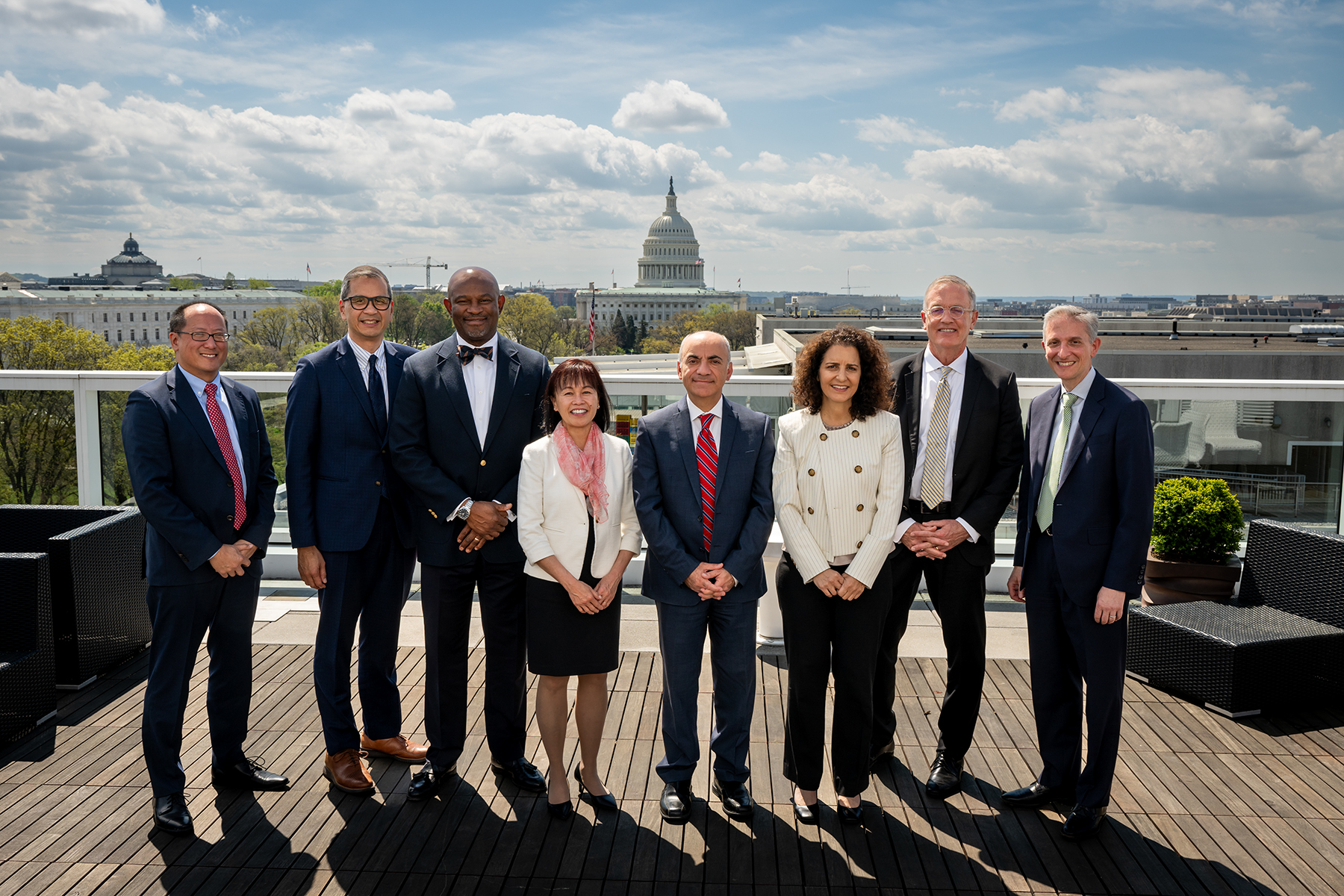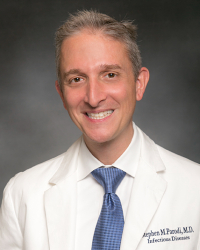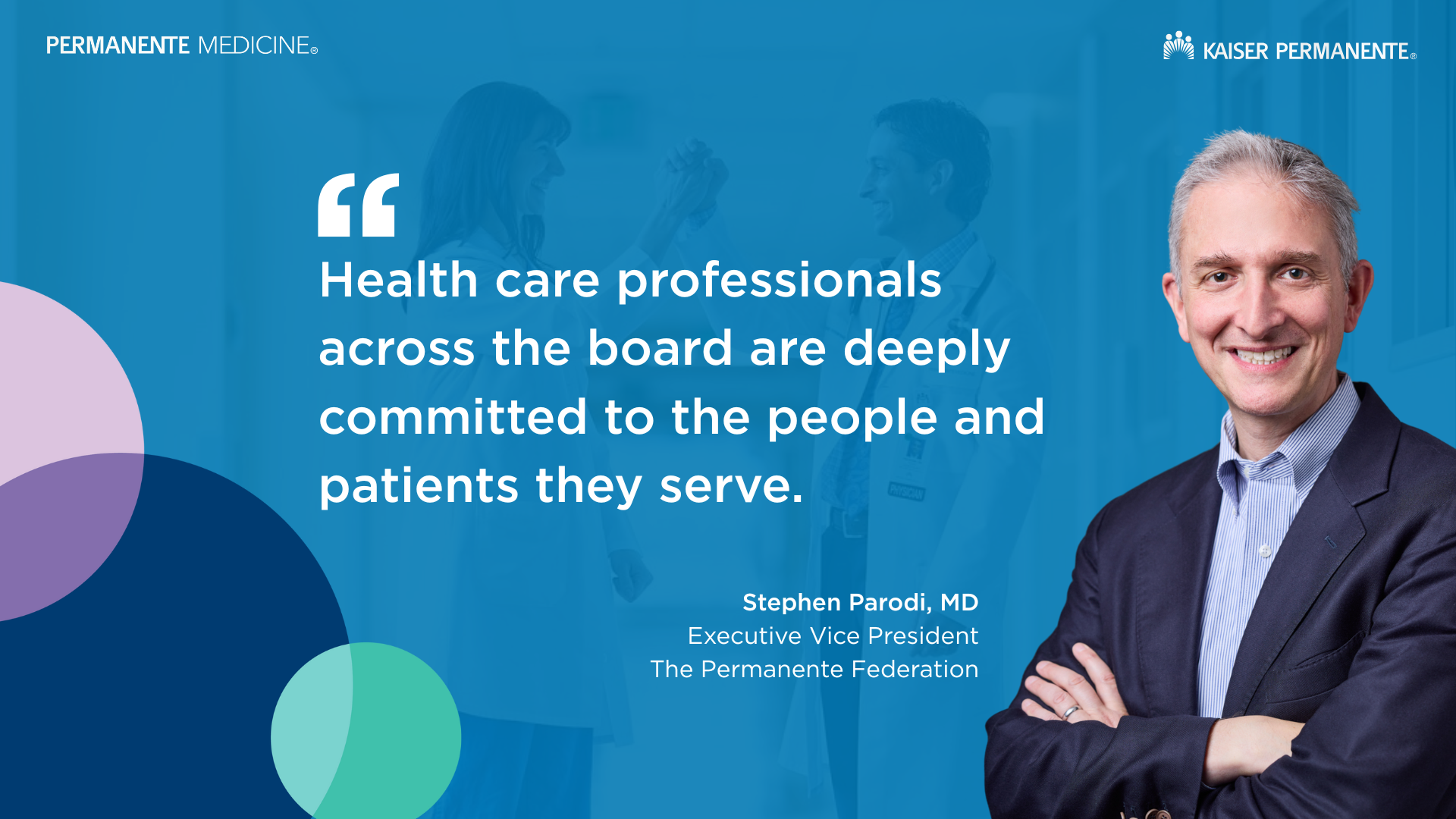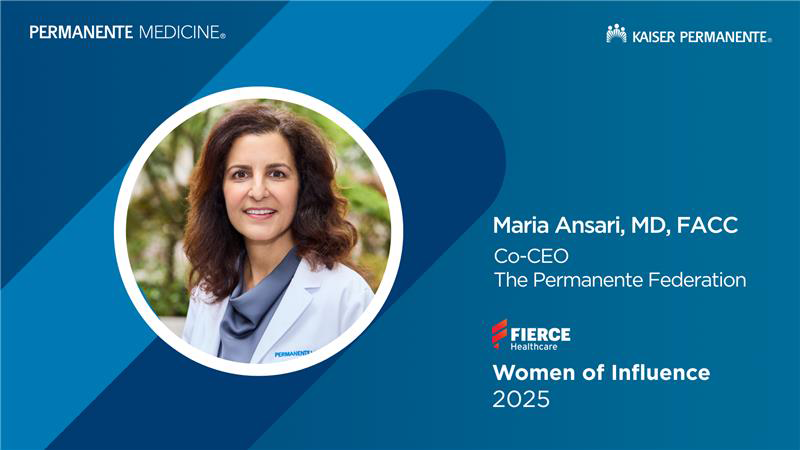Explore valuable lessons learned from Permanente physicians in 2025's rapidly changing health care landscape.

Physician leaders advocate for medical innovation on Capitol Hill
By Stephen Parodi, MD

As Permanente physician leaders, we are responsible for helping shape the future of care. We test innovative care models, author peer-reviewed papers with evidence-based best practices, mentor early career physicians, and advocate for a more effective health system.
Last week, Permanente Medical Group executive medical directors and physician leaders met with members of Congress and their staff in Washington, D.C., urging them to support physicians and other clinicians by advancing medical innovation and addressing factors contributing to physician and staff burnout.
Related physician leadership story: Physicians leading through change
Specifically, we are asking legislators to:
- Continue support for advanced care-at-home, a care model that enables medical teams deliver high-quality, hospital-level care in the comfort of a person’s home through a blend of in-person visits, telehealth, and remote monitoring. Kaiser Permanente is a care-at-home pioneer with years of experience to share, showcasing its value, quality, safety, and popularity with patients, their families, and the physicians who care for them.
- Protect telehealth payment flexibility so patients can continue seeing their care teams from wherever is most convenient. Kaiser Permanente began offering telehealth services in the late 90s, helping patients prioritize their health and avoid care delays caused by the need to arrange time off and childcare, for example. We grew this model through the course of the pandemic and continue to offer this level of flexibility to our patients.
- Urge an evidence-based approach to artificial intelligence regulation by sharing how Kaiser Permanente is already using augmented intelligence to improve outcomes and decrease the administrative work that drives physician burnout.
- Address ongoing physician shortages and prepare the United States to care for the 11,000 people turning age 65 every day by increasing tuition assistance and increasing graduate medical education slots available for primary care, mental health, and other specialties needed to meet the increased demand for professional services.
- Protect physicians and other medical staff from violence that increased during the pandemic. Kaiser Permanente is already taking steps to protect our care teams, and we hope Congress can also take action to improve health care worker safety.
Related physician leadership story: Meeting the health needs of an aging population Shaping the future of health care is both a privilege and responsibility for Permanente physician leaders who have firsthand experience deploying innovations in care and evaluating their return-on-investment at an individual, practice, and system level.
Stephen Parodi, MD, is executive vice president at The Permanente Federation and executive vice president and associate executive director at The Permanente Medical Group.


